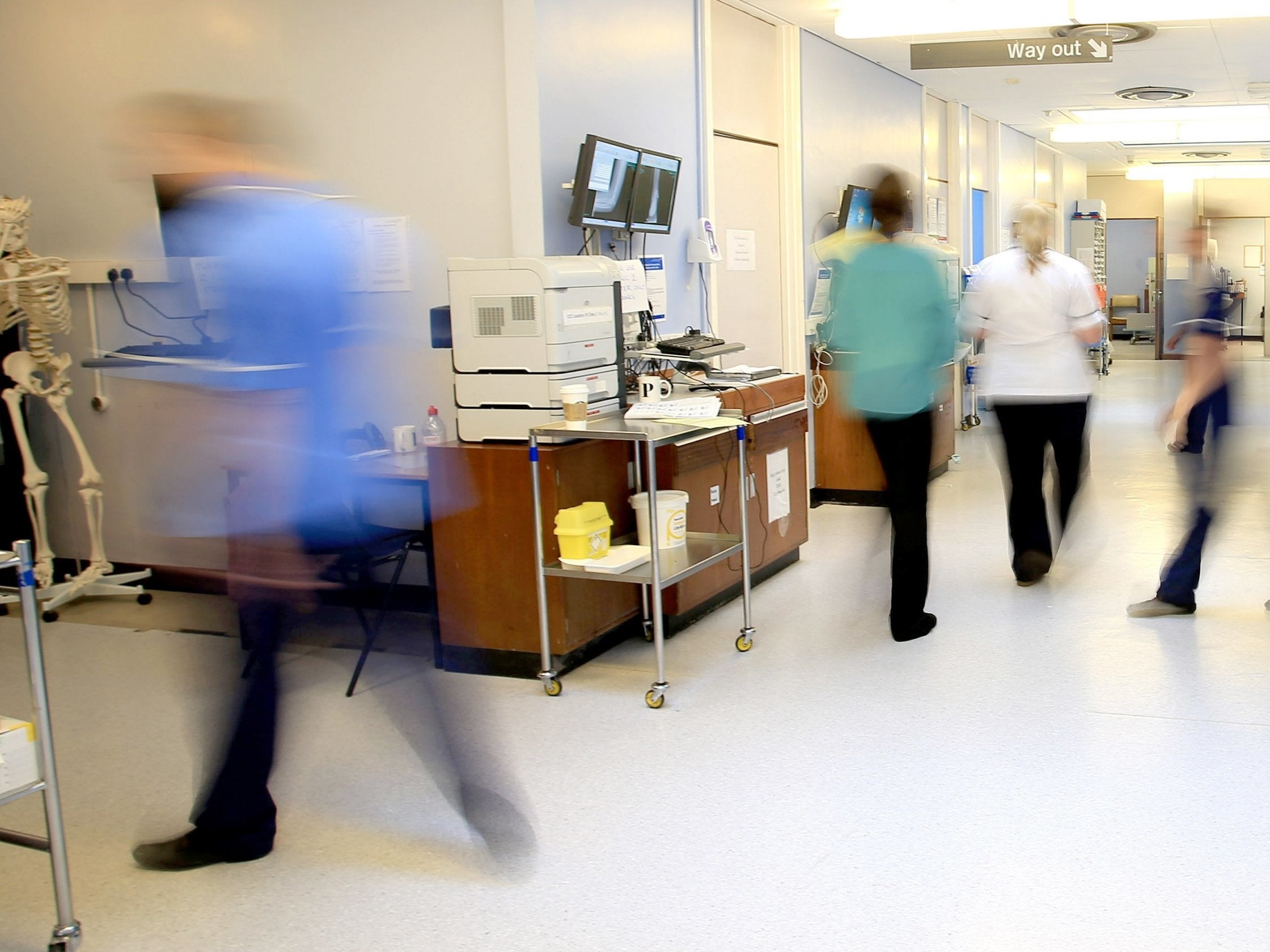Virtual reality, smart beds and digital programmes could transform future of NHS, finds new report
Innovation in technology and healthcare is putting patients truly in control of their own health

Your support helps us to tell the story
From reproductive rights to climate change to Big Tech, The Independent is on the ground when the story is developing. Whether it's investigating the financials of Elon Musk's pro-Trump PAC or producing our latest documentary, 'The A Word', which shines a light on the American women fighting for reproductive rights, we know how important it is to parse out the facts from the messaging.
At such a critical moment in US history, we need reporters on the ground. Your donation allows us to keep sending journalists to speak to both sides of the story.
The Independent is trusted by Americans across the entire political spectrum. And unlike many other quality news outlets, we choose not to lock Americans out of our reporting and analysis with paywalls. We believe quality journalism should be available to everyone, paid for by those who can afford it.
Your support makes all the difference.“Social prescriptions”, smart beds and digital programmes for diabetes are among the futuristic innovations which could transform the NHS in the near future, it has emerged.
According to a new report, patients will soon be connected to social networks of people living in similar situations to learn to manage their own conditions from others who have gone through the same illness.
Virtual reality could also become commonly used to help paralysed patients to walk by training with brain-controlled robotic systems.
And artificial intelligence that predicts the onset of disease may also be commonplace.
The Future of the NHS report by Pharmacy2U has outlined the innovations that are predicted to drive a healthcare revolution over the next five to ten years.
CEO Mark Livingstone said: “Technology has transformed industries from retail to travel, and is now starting to make a significant impact on healthcare.
“We are dispensing 500,000 repeat prescription items a month to NHS patient homes for free every month, and over 60 per cent of this is via artificial intelligence.
“A healthcare system centred around the patient is the future of the NHS and I envisage a world where every individual will be given the technology to empower themselves to control and adapt their own healthcare requirements.”
The paper predicts that giant vending machine-like robots could represent the future of dispensing repeat medication, and smart beds that track your quality of sleep could also be rolled out in hospitals.
Evidence-based digital programmes that help diabetics to shift their lifestyle rather than taking medication are tipped to take off soon, as well as a widespread adoption of smartwatches that record heart rate.
The report predicts innovation in technology and healthcare may give patients greater levels of control when it comes to their own health.
Companies like Pharmacy2U, which uses artificial intelligence to dispense over 500,000 medicines to patients a month, could begin to play a bigger role in creating preventative healthcare.
Fitbit, which tracks your health and activity, and Elvie which creates smart products to help physical recovery, are also making big technological strides in the industry.
According to the report other rapid technological advances include sensors that monitor your posture, apps that track temperature to provide effective contraception and onesies that monitor newborn babies.
The future of smart pharma could see the majority of medicines ordered online and delivered to your home within hours.
With the appropriate level of sign off from a healthcare professional, people could soon receive medical products in the same way we order things like books today, the report concludes.
Ten innovations identified that are helping to drive a healthcare revolution:
-
Virtual reality that can help paralysed patients to walk by training with brain-controlled robotic systems
-
Artificial intelligence that can predict the onset of disease, like heart attacks by training itself to search and find patterns in patient medical data
-
Wearable sensors that monitor and help improve your posture
-
Apps that track your temperature, cervical fluids and moods to provide effective contraception
-
Smart beds that track your quality of sleep
-
Onesies that monitor your newborn’s respiration, temperature, pressure and moisture
-
Artificially intelligent giant vending machine-like robots that dispense repeat medicines
-
Smartwatches that capture our heart rate
-
Evidence based digital programmes that help diabetics to shift their lifestyle rather than taking medication
-
Social prescriptions, which connect patients to social networks of people living in similar situations to learn to manage their own conditions from others who have gone through the same illness
South West News Service
Join our commenting forum
Join thought-provoking conversations, follow other Independent readers and see their replies
Comments